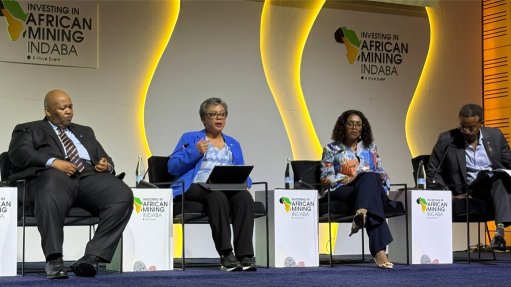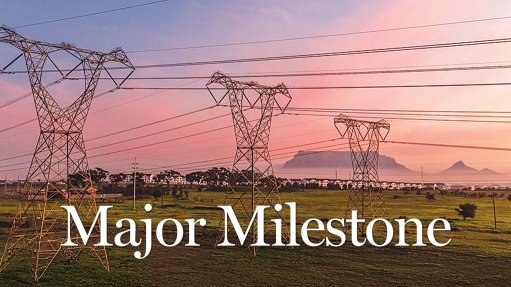Zombie economics
A zombie is a spirit that wanders about the Earth, tormenting the living. Economics has its own zombies, as it does its own apocalyptic events, one of which is a recession. There is an apocalyptic event called a Black Monday, which refers to a global stock market crash. There have been four Black Mondays to date: October 28, 1929; October 19, 1987; August 24, 2015; and March 9, 2020.
Economic zombies are companies that earn just enough money to continue operating and servicing their debt but are unable to pay off the debt. They just scrape by meeting overheads, have no excess capital to invest in order to spur growth. They are typically subject to higher borrowing costs and may be just one event – a market disruption or a poor quarterly performance – away from filing for insolvency or pleading for a bail-out. Zombie companies are especially dependent on banks for financing.
Now that you are sufficiently empowered to identify zombies, try your hand at identifying South Africa’s zombie companies. If you apply your mind, you will no doubt not be short of names. But you would be wrong if you thought South African Airways (SAA) was a zombie company. You would also be wrong if you thought the majority of South Africa’s State-owned enterprises (SOEs) were zombie companies. This is because these companies do not “earn just enough money to continue operating and service debt but are unable to pay off their debt”. They are not zombie companies, but dead companies. Government should rid the economy of these dead companies, as no positive can be gained from retaining them. SAA is one such SOE that should have been jettisoned ages ago. Its continued existence seems to be justified by what Frank Zappa says: “You can’t be a real country unless you have a beer and an airline. It helps if you have some kind of a football team, or some nuclear weapons, but at the very least you need a beer.”
As the headline of this article reminds us, there is a field of study in economics called zombie economics, and there is also a book titled Zombie Economics: How Dead Ideas Still Walk among Us. Nothing exemplifies zombie economics more than the National Treasury’s media briefing of April 25, convened to unpacked the R500-billion economic support package that had been announced by President Cyril Ramaphosa days earlier. You would only genuinely appreciate these types of media briefings if you had full-blown amnesia. As Gore Vidal observes: “We are the United States of Amnesia; we learn nothing because we remember nothing.”
The opening sentence in the introduction of the National Treasury’s presentation states: “We are, as a nation, facing extraordinary times and enormous economic challenges.” This would have evoked the following response from my beloved economics professor: “Sir, you have a knack for the obvious.”
The second sentence in the introduction – “We have, however, got the human and other resources, and the resilience as a nation to overcome this challenge” – would test even the resolve of the world’s top motivational speaker. It appears to have been lifted from a cheerleader’s chant.
The introduction concludes: “It must also be about the businesses – large and small – that drive our economy and create work for our people. It must be about our banking and financial system, to make sure money continues to flow through the veins of the economy.” Two questions: Just exactly how, and at what cost? With regard to the cost, who will be paying for this?
If you have been a reader of this column, you would have come to the realisation that the South African economy is dead. In recent weeks, government approached the International Monetary Fund, the World Bank, the New Development Bank and the African Development Bank for funding. If this does not qualify South Africa as a zombie economy, then what does?
Article Enquiry
Email Article
Save Article
Feedback
To advertise email advertising@creamermedia.co.za or click here
Press Office
Announcements
What's On
Subscribe to improve your user experience...
Option 1 (equivalent of R125 a month):
Receive a weekly copy of Creamer Media's Engineering News & Mining Weekly magazine
(print copy for those in South Africa and e-magazine for those outside of South Africa)
Receive daily email newsletters
Access to full search results
Access archive of magazine back copies
Access to Projects in Progress
Access to ONE Research Report of your choice in PDF format
Option 2 (equivalent of R375 a month):
All benefits from Option 1
PLUS
Access to Creamer Media's Research Channel Africa for ALL Research Reports, in PDF format, on various industrial and mining sectors
including Electricity; Water; Energy Transition; Hydrogen; Roads, Rail and Ports; Coal; Gold; Platinum; Battery Metals; etc.
Already a subscriber?
Forgotten your password?
Receive weekly copy of Creamer Media's Engineering News & Mining Weekly magazine (print copy for those in South Africa and e-magazine for those outside of South Africa)
➕
Recieve daily email newsletters
➕
Access to full search results
➕
Access archive of magazine back copies
➕
Access to Projects in Progress
➕
Access to ONE Research Report of your choice in PDF format
RESEARCH CHANNEL AFRICA
R4500 (equivalent of R375 a month)
SUBSCRIBEAll benefits from Option 1
➕
Access to Creamer Media's Research Channel Africa for ALL Research Reports on various industrial and mining sectors, in PDF format, including on:
Electricity
➕
Water
➕
Energy Transition
➕
Hydrogen
➕
Roads, Rail and Ports
➕
Coal
➕
Gold
➕
Platinum
➕
Battery Metals
➕
etc.
Receive all benefits from Option 1 or Option 2 delivered to numerous people at your company
➕
Multiple User names and Passwords for simultaneous log-ins
➕
Intranet integration access to all in your organisation


















